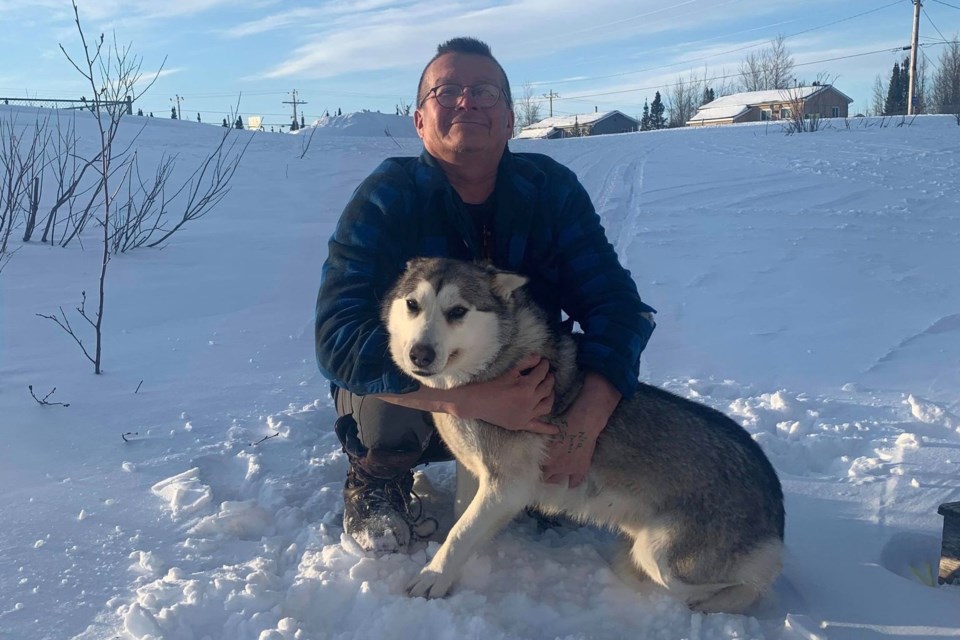Peawanuck has secured federal funding to research and address the impacts of climate change.
According to Peawanuck resident Sam Hunter, the community has received about $450,000 from the federal government's Indigenous Community-Based Climate Monitoring Program.
The three-year funding is for research initiatives such as taking samples of soil and water, studying fish, permafrost conditions and peatlands. The project will also include designing energy-sufficient homes, starting up greenhouses, chicken coops and beehives as well as involving the school, elders and doing land-based activities with the youth.
Hunter, who’s the natural resources monitor with the community's band council, said he has already started some work on the project and is in the process of hiring an assistant.
“The ball is already rolling,” he said. “It’s a good time to get started.”
The band council applied for funding in response to the climate-related changes in the past decades that have been impacting the way of life in the northern community, according to Hunter.
Travelling in winter is precarious because the winter road doesn’t freeze enough or it's sometimes difficult in summer because the water can be very low, said Hunter. Mild weather closed the seasonal Wapusk Trail connecting Peawanuck to Gillam, Man., according to Hunter.
“Up here, there’s a lot of water everywhere you go,” he said. "Our fuel, gas or transportation, which is the source for food security, that's going to be expensive because of climate change."
Food security is another important issue the community wants to address.
“A lot of this climate change, we have nothing to do with it, it’s all cars and cities and people other than us," Hunter said. "But we’re the most impacted. And we have to try to adapt and we have to try to do it now.”
Peawanuck is partnering with several government agencies, organizations, educational institutions and scientists on the project.
For one of the pilot projects this summer, the community is planting eight different vegetables.
The Mennonite Central Committee (MCC) is sending a greenhouse and seeds to the community through its Indigenous Neighbours’ Sowing Reconciliation program.
For next year, the plans are to build five greenhouses for five different families.
“We want to make sure we experiment, do our research this year and then go full speed next year,” Hunter said.
At the request of a remote Indigenous community, the organization sends gardening tools, seeds or garden fencing to support Indigenous food sovereignty, said the Indigenous Neighbour’s program co-ordinator Lyndsay Mollins Koene.
“We’re able to help out when there’s a request. We will be sending Sam a greenhouse and some seed,” she said. “We’re sending a lot of root vegetables. Sam has requested beans, peas and tomatoes, things that can be hurt by frost very easily, for the greenhouse. And then, we’ll also send some potato seed and some other bits and pieces like that.”
In northern communities, limited retail competition may be a contributing factor to food insecurity, according to the article published in the 2017 Health Promotion and Chronic Disease Prevention in Canada: Research, Policy and Practice journal. Responses to the survey showed that consumers living in the north were concerned with the quality of food, availability of certain products and the high cost of food.
Instead of spending fuel on bringing food from California or Mexico, the community can reduce its carbon footprint by growing and having access to its own food that can last for a whole year, Hunter said adding many community members will save money on food this way.
As part of the research project, Hunter said there are also plans to import beehives from the south. The beehives are expected to produce 200 litres of honey per year to replace sugar.
The only unforeseeable issue is the ongoing pandemic that may prevent project partners from travelling to the community in the summer, Hunter said.
"I'm really thankful for the partners that we have. I just hope for the best for the next couple of years and hope everything goes OK," he said.



